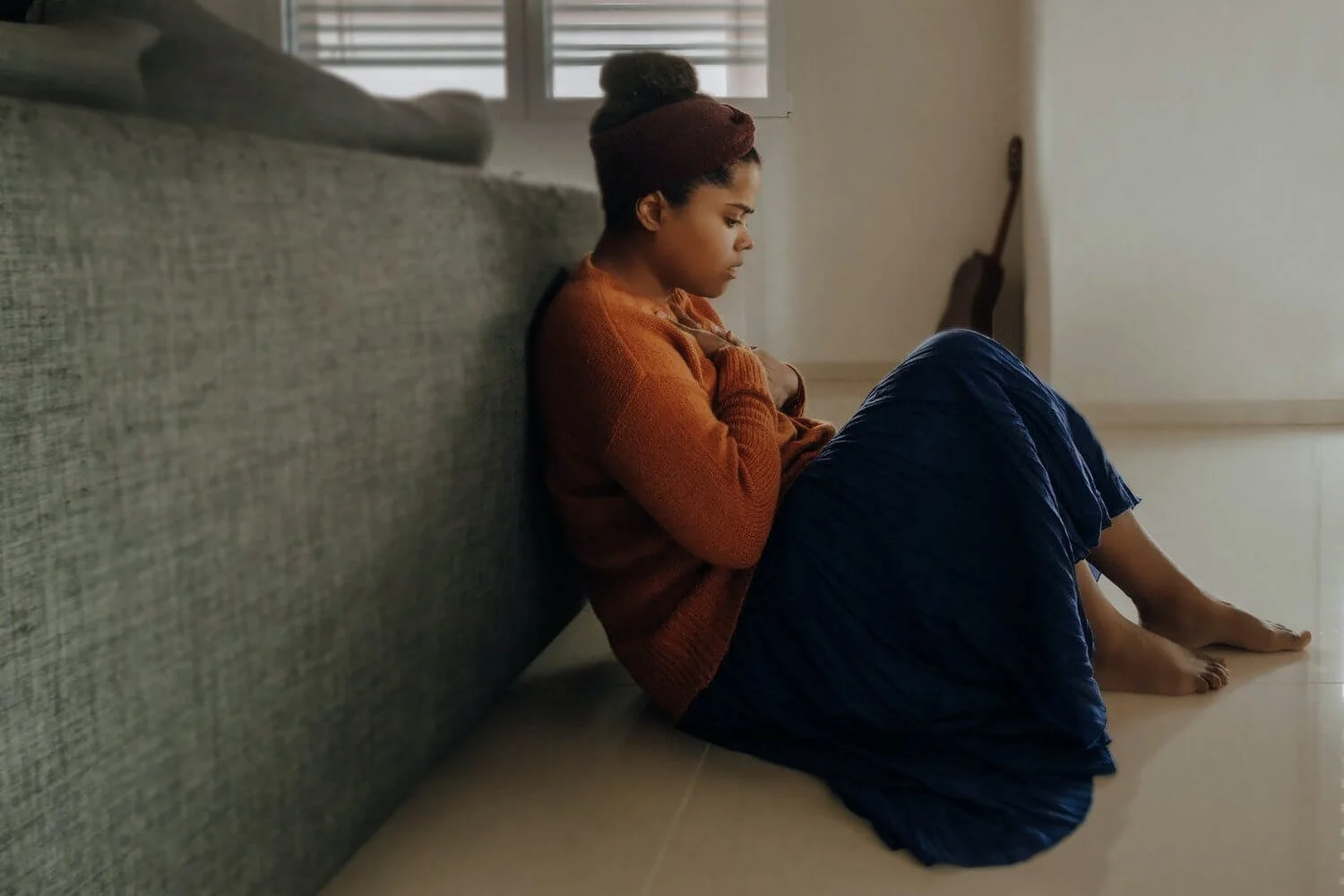36 Anxiety Journal Prompts & Ideas
For those of us struggling with anxiety, it can be hard to find ways to cope. Keeping a journal is one of the best tools.
Journaling has been linked with decreased feelings of nervousness as well as improved mental clarity and problem solving skills. With that in mind, we’ve put together some great ideas on tips to keeping an anxiety journal, anxiety journal prompts, and more!
As someone who has suffered from anxiety since childhood, journaling has been a huge part in my journey! I'll share a bit more about my personal journaling too!
While journaling can be an effective tool for those struggling with anxiety, please be sure to seek professional help if needed.
This post does contain some affiliate links. If you decide to make a purchase The Honest Consumer may receive a commission at no additional cost to you.
What Is an Anxiety Journal ?
Anxiety is a common condition that affects millions of people around the world. The National Alliance on Mental Illness estimates that over 40 million adults in the U.S. (19.1%) have an anxiety disorder.
An anxiety journal is a tool that can be used to help relieve symptoms of anxiety by encouraging individuals to express their emotions and feelings in a safe and private setting.
Simply writing down thoughts about what makes us anxious, how we feel, and what’s bothering us can be incredibly therapeutic.
It’s a way to confront our anxiety head-on and come up with effective strategies to cope with it.
Whether you prefer to use a pen and paper, a dedicated app, or an online diary, an anxiety journal can help you take control of your mental health and live a more peaceful, happy life.
Benefits of Writing Down Your Thoughts and Feelings
Writing down your thoughts and feelings may seem like a simple task, but the benefits it can bring are truly remarkable. It allows individuals to have a safe outlet to express their emotions freely without being judged or criticized.
Self Discovery
Writing can lead to self-discovery, as people gain insights and new perspectives when they take a step back from the situation they’re in.
Process Emotions & Feelings
This practice can also help individuals cope with stress and trauma, as it provides a way to process overwhelming emotions.
Recognize Patterns
Writing when you're feeling anxious can also help you recognize patterns. This might help you identify anxiety triggers such as certain situations, places, or things that cause you to feel anxious.
Additionally, writing down one's thoughts and feelings promotes creativity and boosts cognitive function, enabling individuals to express themselves more efficiently.
Overall, it’s clear that taking the time to write regularly about one's thoughts and feelings can lead to invaluable personal growth and enhance overall well-being.
Different Ways to Write in An Anxiety Journal
Consider what style of journaling works best for you! Here are a few different examples!
Reflective Journaling
Reflective journaling is a form of journaling that encourages self-reflection. This type of writing helps you process your thoughts and feelings by exploring them in more depth.
Creative Journaling
Creative journaling is another way to express yourself through writing. This involves expressing your emotions through stories, drawings, music, or poetry.
Creative journaling can be a great outlet for anxiety, as it allows you to express yourself in a unique and safe way. Consider grabbing some markers or craft supplies to add your favorite color or sparkle to your journal entry for the day.
Letter Writing
Letter writing is also a form of journaling that can help you manage anxiety. This involves writing letters to yourself or others about your emotions and experiences.
Writing letters provides an opportunity to reflect on how the situation has affected you, and can be cathartic as it allows you to express any feelings of anger, guilt, or sadness.
Expressive Writing
Expressive writing is a type of journaling that has been linked to mental and physical health benefits. This involves writing freely about your emotions, thoughts, and experiences in order to gain insight into yourself and your life.
Expressive writing can help you process difficult situations, cope with anxiety, and manage stress.
Bullet Journaling
Bullet journaling is a form of journaling that incorporates organization and creative expression.
This type of journaling is particularly helpful for those who suffer from anxiety, as it allows you to plan out tasks in an organized manner while also providing an outlet for creativity. Bullet journals are often used to help manage stress and improve productivity.
Worry Journal
This type of writing involves systematically exploring your worrying thoughts, analyzing them, and then coming up with coping strategies for dealing with them. Worry journaling can be a helpful tool for managing anxiety and reducing stress levels.
Gratitude Journal
Gratitude journaling is a form of journaling that encourages you to focus on the positive aspects of your life. This type of writing helps to shift your perspective away from anxiety and towards gratitude, which can help reduce stress.
Gratitude journals also provide an opportunity for self-reflection and growth.
No matter which type of writing you choose, remember that journaling can be a powerful tool for managing anxiety.
Writing about your experiences and emotions can help you gain insight into yourself, process difficult situations, and find relief from the symptoms of anxiety.
By taking the time to write in your anxiety journal, you’ll be able to gain insight into how your emotions affect your life, and find ways to manage them more effectively. And you don't have to have the same particular writing style every time!
You can switch it up or brain dump. Sometimes just dumping all your thoughts onto the paper is the most effective!
What to Write in an Anxiety Journal?
An anxiety journal can serve as a safe haven for those who struggle with anxiety. Writing down your thoughts and feelings can help you process them, and it can also provide a sense of relief.
There are different types of prompts to utilize in an anxiety journal, depending on what you need to focus on.
For instance, you could write about your triggers and how they make you feel or the strategies you use to cope with stress.
Alternatively, you could describe a situation that makes you anxious and explore how you could handle it differently.
Whatever you choose to write about, take comfort in knowing that your anxiety journal is a space where you can express yourself without judgment or reservation.
If you're still feeling unsure about how to get started here are some writing prompts.
36 Journal Prompts for Anxiety
1. What is something that I am grateful for today?
2. If I could give myself one piece of advice, what would it be?
3. How did I show self-care today?
4. What are three positive things that happened to me today?
5. What activities help me feel calmer when my anxiety is high?
6. What is something that I can do to take my mind off of anxious thoughts and feelings?
7. How did I practice self-compassion today?
8. What was the best part of today?
9. What small steps am I taking towards achieving my goals?
10. How can I practice self-acceptance today?
11. Do I physically feel anxiety in my body?
12. What do I need today?
13.How can I practice mindfulness?
14. Focus on your five senses and your environment. What do you see? What do you feel? What do you smell? Etc. This journal prompt can help bring you back to the present moment.
15. Write a love letter to yourself.
16. Write about a happy memory.
17. Make a list of songs that you love! Why do you love each one?
18. Write a list of positive affirmations that speak to you.
19. Write a letter to your future self
20. What am I avoiding because of my anxiety?
21. What can I learn from this situation?
22. How can I set realistic expectations for myself?
23. What positive affirmations can I tell myself right now?
24. How did I choose to respond instead of react today?
25. What techniques can I use to manage my anxiety in difficult situations?
26. How have I expressed gratitude today?
27. What was something positive that happened today that I can celebrate?
28. What is one thing in my life right now that makes me feel content?
29. Who are the people in my life that I can rely on for support?
30. What do I need to shift my mindset from anxious to peaceful?
31. How did I honor my emotional needs today?
32. When was the last time I felt truly content and relaxed?
33. What small steps can I take to reduce my stress levels?
34. What are some positive self-talk statements I can tell myself?
35. How did I challenge any negative thoughts today?
36. What do I need to do for myself in this moment to feel calmer and more confident?
Picking a Journal
If you've got a journal laying around the house with a blank page or two start with that! If you're looking to purchase a new journal to motivate yourself, here are a few great options.
I’ve used all of these in my anxiety journaling experience and my own blank journals. I like having a mix of journals with prompts for the days I feel less motivated.
This post does contain some affiliate links which means The Honest Consumer may receive a commission if you decided to purchase. Our commission is at no additional expense to you!
Create Your Own Calm: A Journal for Quieting Anxiety
Create Your Own Calm: A Journal For Quieting Anxiety is an anxiety journal that features inspiring quotes and engaging journal prompts. It’s a great way to be creative and mindful at the same time.
I’ve enjoyed this journal and think it also makes a great gift for anyone struggling with mental health.
Let That Sh*t Go: A Journal for Leaving Your Bullsh*t Behind and Creating a Happy Life
I have truly loved the bold and fun vibe of this journal. This journal offers a range of activities and creative tasks to help you work through anxiety!
Aya Paper Co. Journals
If you’re looking for a blank journal with nicely lined paper, I personally love Aya Paper Co. The journals are printed sustainably on 100% PCW Recycled, PCF Chlorine Free paper.
I’ve been using the Less Planning, More Manifesting journal for my morning journaling and love it. It’s also a great size to stick in your bag and take with you.
Garden24 Notebooks
If you’re looking for a great spiral notebook, I love Garden24’s You Belong Spiral Notebook. It has 192 pages, so you can write so many thoughts!
Developing a Journaling Routine for Anxiety
For those who struggle with anxiety, an anxiety journal can be a powerful tool for managing and coping with daily stressors. It's important to develop a routine and structure for using your journal effectively.
Make it Your Own
Whether it's setting aside a specific time each day to write, incorporate mindfulness exercises into your writing practice, or utilizing prompts to guide your thoughts, finding a routine that works for you can be a game-changer.
Make it a Habit
By committing to this habit, you may find that your anxiety becomes more manageable as you learn to process and articulate your thoughts and emotions.
My Journaling Routine
For me personally, I like to journal every morning and night. In the morning I like to journal more creatively. I use the Storyteller app which presents a daily poem and prompt. At night time I like to journal about my day.
This helps me process my feelings and emotions from the day. It's a great way to help let go of whatever happened before bed.
Once you make journaling part of your daily life, it's also really cool to track your own progress. Sometimes you can look back on old journal entries and remind yourself, WOW I overcame that difficult situation. It's a great tool for seeing how far you've come.
Tips for Writing in an Anxiety Journal
Writing in an anxiety journal can be a therapeutic way to alleviate stress and anxiety. However, starting this practice may seem overwhelming. Here are a few tips to help make journaling with an anxious mind a bit easier.
Pick a Calm Environment
Begin by finding a quiet space and setting aside time each day to write.
Imperfect is okay
Don't worry about writing perfectly, just let your thoughts flow freely onto the page. As you write, try to focus on your emotions and physical sensations. This can help you identify triggers and patterns in your anxiety.
Get Creative With It
You can also use your journal to practice mindfulness exercises, deep breathing techniques, and self-compassion. Remember to be kind to yourself and celebrate your progress, even small victories.
Ultimately, your anxiety journal should be a safe and supportive environment for you to process your thoughts and feelings.
Healthy Habits to Incorporate into Your Anxiety Journal Writing Practice
As someone who struggles with anxiety, incorporating healthy habits into your daily routine can be crucial to maintaining a sense of calm and balance. One habit to consider is incorporating journal writing into your routine.
Not only can regular journaling be a great way to release pent-up emotions, but studies have shown that it can also promote feelings of gratitude and increase self-awareness.
To optimize your journal writing practice, consider carving out some dedicated time each day, finding a comfortable and quiet space to write, and focusing on the positive aspects of your day or reflecting on areas you want to improve.
By incorporating this healthy habit into your routine, you may find that you have an increased sense of clarity and control over your thoughts and emotions.
By discovering what anxiety journaling is and engaging in writing exercises, you can develop a greater self-awareness of your anxious thoughts, moods, and habits.
Remember that starting an anxiety journal doesn’t need to be overwhelming or take up too much of your time. Make it a habit to write in small increments such as 10 minutes every day or even two days a week.
Writing down your thoughts can help allow you to regulate them and process them better – plus the sense of accomplishment that comes with expressing yourself through writing helps foster hope and motivation.
Finally, if you want to empower yourself start by encouraging yourself to journal. Instead of ignoring or trying to suppress anxious feelings and experiences, journaling becomes an expression of who you are and is something you should nurture.
So now we invite you to dive into this form of self-care and start using an anxiety journal today!
Hopefully these tips and list of journal prompts has inspired you to start your mental health journal! I've personally found my daily journaling practice to be a good way to process my emotions and stressful situations that happen in my day-to-day life.
This mindfulness practice has truly made a difference in my struggle with anxiety and I hope it does the same for you.
For more ethical & sustainable tips be sure to explore more conscious lifestyle blog posts, follow The Honest Consumer on social media, subscribe to our newsletter, & check out the Ethical & Sustainable Brand Directory.



























